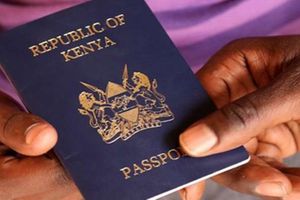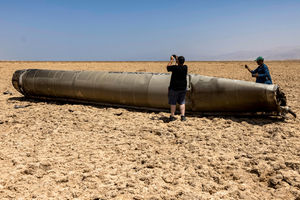Experts deplore weak private sector for industrialisation

Finance and Planning minister Philip Mpango displays a bag containing the 2017/18 budget upon his arrival in Parliament. PHOTO|FILE
What you need to know:
- This is the case as Tanzania is striving to attain its industrialisation goal by 2020.
Dar es Salaam. Tanzania’s private sector is weak to build a strong economy, experts have said.
This is the case as Tanzania is striving to attain its industrialisation goal by 2020.
According to economics professor Haji Semboja, of the University of Dar es Salaam, although measures taken by the government in its 2017/17 budget to protect local manufacturers are welcome, they are long-overdue and the private sector is weak.
“The current stance of the government to protect investors is welcome, but it should be backed by supporting measures from social groups and all corners of society including civic and religious organisations,” says Prof Semboja.
He told BusinessWeek that it would be difficult to build an industrial economy and become a middle-income status if local industrialists are few to team up with their foreign counterparts in the endeavour.
He speaks of the importance of public-private partnerships and joint ventures between local and foreign investors to build strong industries.
Economics professor Honest Ngowi, of Mzumbe University, cautions that since there are no supportive measures to tackle major economic problems, the private sector will not play a big role as it is expected in 2017/18.
He says the poor performance in implementing the 2016/17 budget and the current challenges such as business closures, credit crunch and banks struggling banks with high non-performance loans augur ill for the economy.
He was speaking at a budget forum organised by KPMG last week.“Some 7,277 businesses have been closed and the situation seems to continue. Most banks have high non-performing loans, with three of them stopping operations. Moreover, problems still dog the country’s financial system. These are bad signs.”
He is worried whether revenue collection targets and disbursements of funds to respective ministries will be attained in 2017/18.
Although he supports government’s cost-cutting measures, he fears that they will weaken the private sector if there are overdone.
The KPMG senior manager for Tax Services, Mr Donald Nsanyiwa, told the forum that most tax changes in the budget are unfavourable to low-income earners.
“Reducing and removing some taxes on cars while increasing costs on oil will have no positive impact on smallholder farmers who have never dreamed of purchasing cars.”
He says even the tax cuts of two and three per cent on cash and food crops plus free transport for more than one tonne of food within local councils will not help much, because oil will make transport burdensome.
Finance and Planning minister Philip Mpango told Parliament in Dodoma last week that to support the national strategy on industrialisation excise duty for some local products would not be adjusted.
Adjustments of specific excise duty rates were on soft drinks (from Sh58 to Sh61 per litre), imported mineral water containing added sugar or other matter of flavour (from Sh58 to Sh61 per litre), beers made from local unmalted cereals (from Sh429 to Sh450 per litre), on other beers from Sh729 to Sh765 per litre as well as on non-alcoholic beers (including energy drinks, non-alcoholic beverages) from Sh534 to Sh561 per litre, on imported spirits from Sh3,315 to Sh3,481 per litre, on wines produced with more than 25 percent imported grapes from Sh2,236 to Sh2,349 per litre while that on imported fruit juices rose from Sh210 to Sh221 per litre.Duty on wines produced from domestic grapes with content exceeding 75 per cent has fallen from Sh202 to Sh200 per litre while that on locally produced fruit juices decreased from Sh9.5 to Sh9 per litre.
That for locally produced water remains at Sh58 per litre while that on locally produced spirits is Sh3,315 per litre. According to Dr Mpango, the government intends to borrow Sh7.76 trillion from domestic and external non-concessional sources.
“To speed up the development of infrastructure, the government intends to borrow Sh1.59 trillion from external sources.”
Dr Mpango’s Sh31.7 trillion revenue and expenditure plan for 2017/18 read for more than two hours was both sweet and bitter, putting a smile on the faces of some but raiding big business, especially in mining, with the surprise introduction a 1 per cent new tax on the value of mineral exports. Small-scale miners will now also pay a 5 per cent withholding tax on the value of their minerals.
As is the norm, sin tax went up while the minister ended a long break on fuel tax by introducing excise duty of Sh40 per litre of petrol, diesel and kerosene which will likely impact on the cost of goods and services.
Dr Mpango cleverly swapped the new fuel tax with the scrapping of the nuisance annual motor vehicle licence fee to draw the loudest of the cheers from MPs and crowds following the proceedings on radio and television. The minister said the government will also pardon all the debts associated with this tax that was being charged even on unused vehicles. He said the tax will be charged only once during registration of vehicles whose cost however went up by Sh50,000 depending on the engine size of the car.
The minister appeared to have read from the same script as MPs who rooted for the changes during the debate of most the ministerial budget allocations.
Farmers who had crop cess on less than a tonne of produce dropped, fishermen whose corporate tax on vessels was cut from 30 to 10 per cent, the disabled whose equipment was zero-rated and trackers whose VAT on transit goods was dropped were some of the big winners. The qualifying amount of non-commercial motor vehicle has also been raised from Sh15 million to Sh30 million. Informal traders too will now be officially registered and special areas set aside for them to carry out their businesses without the harassment from local authorities.
Dr Mpango who used a considerable time to praise Dr Magufuli and his vision for Tanzania noted that his proposed reforms seeks to put the country on the right path to achieve its industrialization agenda.
His VAT exemption on imported capital goods was seen as a deliberate measure to woo industrial investors and shore the recently tumbling export of manufactured goods.
“My plan aims at building a strong base for industrial economy and widening employment opportunities and trade,” Dr Mpango told a fully-packed House.
In the endeavour to promote investment in the assembling of vehicles, tractors and fishing boats, a vital step towards nurturing the growth of small, medium and largest scale industries, the reduced Corporate Income Tax on the services from 30 per cent to 10 per cent for the first five years from commencement of operations.
The drop in importation of capital goods - which are meant to boost industrial activities in technologically-challenged countries like Tanzania saw exempting VAT on capital goods in order to reduce procurement and importation costs on machines and plants used in production. “The objective of this measure is to promote investments in small, medium and large scale industries by providing relief on taxes in the purchase of machines and plants,” he said.




